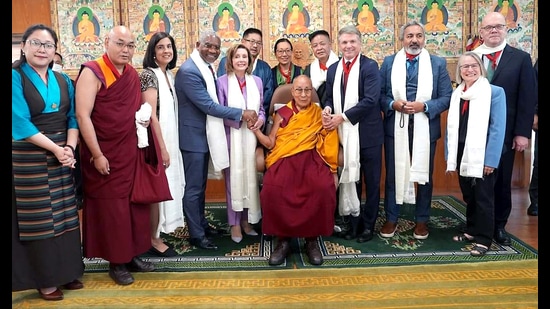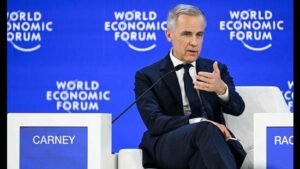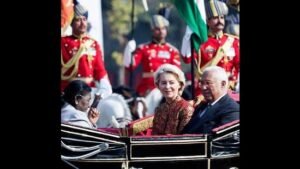
These days, one often hears that China may choose the next Dalai Lama. Alarming as it may sound to many around the globe, my answer is invariably and emphatically: It doesn’t matter. For the Tibetan people, it does not matter if China chooses its own Dalai Lama. Just as with the Chinese-appointed Panchen Lama, a Chinese-appointed Dalai Lama will only cause embarrassment for China. Despite Beijing’s all-out efforts to promote their Panchen Lama as an authentic spiritual leader, the Tibetan people have firmly and wholeheartedly refused to offer him even a modicum of obeisance.

Unlike the Panchen Lama’s case, where the real Panchen Lama along with his entire family have “disappeared”, when that critical time eventually dawns upon us, the world will have another Dalai Lama, born in a free country, recognized in accordance with Tibetan religious traditions and customs, and chosen as per the clear instructions left behind by the current Dalai Lama.
Despite China’s complete occupation of Tibet since the Dalai Lama’s escape into exile in 1959, it still lacks legitimacy for its rule over Tibet. It, therefore, continuously insists that other countries recognize Tibet as a part of China. Since the Dalai Lama has been historically the supreme temporal and spiritual head of Tibet, if China can somehow arrogate to itself the right to recognize and choose the next Dalai Lama, selecting a docile one, it would help legitimize its rule over Tibet. This is inherently flawed.
Tibetans revere the Dalai Lama as the emanation of Avalokiteshvara, the bodhisattva of compassion and the patron saint of Tibet. He is the ultimate symbol of Tibet as a nation and its people. The process of search and recognition of a reincarnation may seem complex and intricate to outsiders, it’s important to note that since 1391, the Dalai Lama has been reincarnated 13 times. The institution of the Dalai Lama, in stark contrast to the People’s Republic of China established only in 1949, is ancient and experienced enough to manage all potential future scenarios.
Let me briefly set the basics straight on the issue of reincarnation. The following excerpt from the present Dalai Lama’s interview to TIME in 2004 should offer some insight: “The institution of the Dalai Lama, and whether it should continue or not, is up to the Tibetan people. If they feel it is not relevant, then it will cease and there will be no 15th Dalai Lama. But if I die today, I think they will want another Dalai Lama. The purpose of reincarnation is to fulfill the previous [incarnation’s] life task. My life is outside Tibet, therefore, my reincarnation will logically be found outside. But then, the next question: Will the Chinese accept this or not? China will not accept. The Chinese government will most probably appoint another Dalai Lama, as it did with the Panchen Lama. Then there will be two Dalai Lamas: one, the Dalai Lama of the Tibetan heart, and one that is officially appointed.”
The mind-boggling conundrum such a situation presents for Beijing was highlighted back in 2013 by a professor at the Party School of the Central Committee of the Chinese Communist Party in Beijing. In an interview with Asia Weeklyprofessor Jin Wei noted that treating the Dalai Lama as an “enemy” alienated all six million Tibetans who revered him as “the living Buddha.” She said, “The Dalai Lama is the key to the issue of Tibet,” and recommended that China should resume its stalled dialogue with him. According to Jin Wei, China’s ultimate goal should be to avoid an embarrassing situation that throws up two Dalai Lamas. She believed that if China could control the selection of the next Dalai Lama’s reincarnation, the party would gain the goodwill of all Tibetans and weaken the Tibetan independence forces working outside the country. Unfortunately, both then and now, good sense has yet to prevail in China.
The system of reincarnation, unique to Tibetan Buddhism, is a purely religious matter rooted entirely in people’s faith. No force can impose faith upon people. And in matters of faith, there is no room for compromise, flexibility, or doubt: Either people believe someone is the reincarnation, or they don’t; there are no maybes.
The United States, through various legislative acts concerning Tibet, has sent a clear and strong message to China that it stands firmly in solidarity with the Tibetan people. It is high time for other countries to step up and clarify their stance on whether the Tibetan people have the right to religious belief and the freedom to choose their own religious leaders, thereby helping prevent China from creating an embarrassing situation for itself.
Dhundup Gyalpo is the secretary of bureau of His Holiness the Dalai Lama, New Delhi.The views expressed are personal




